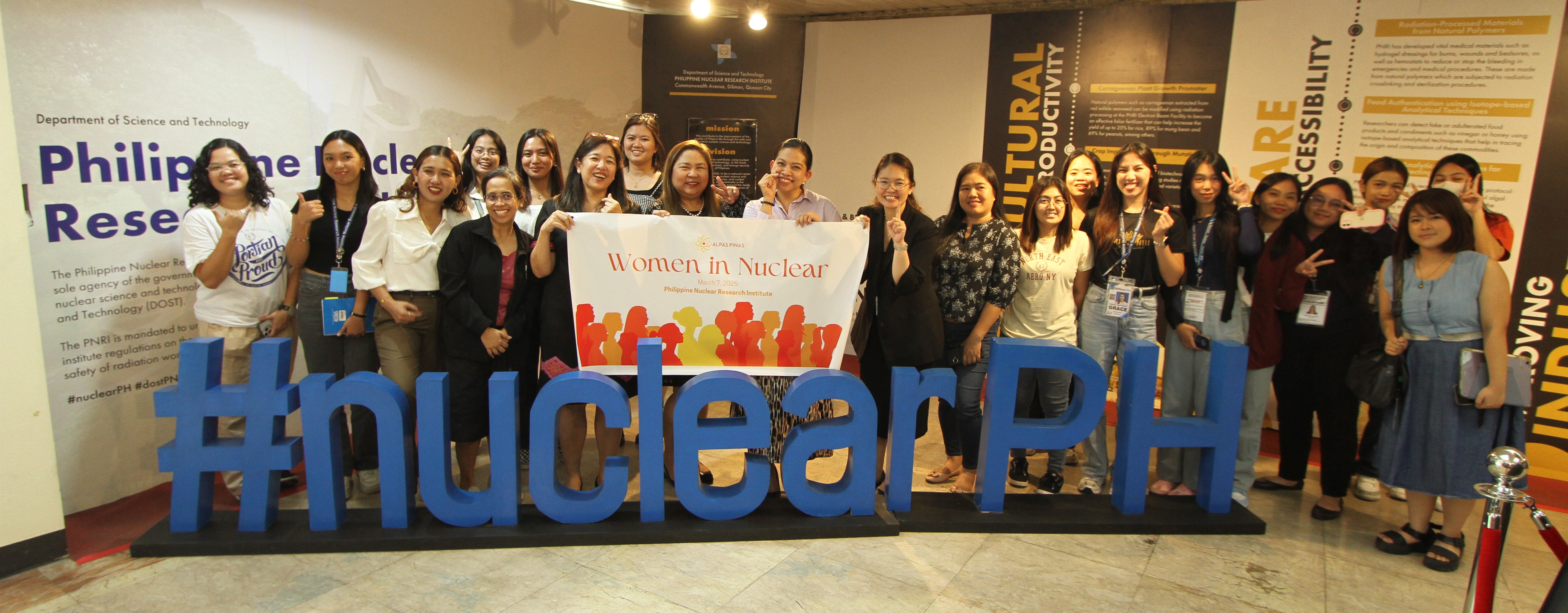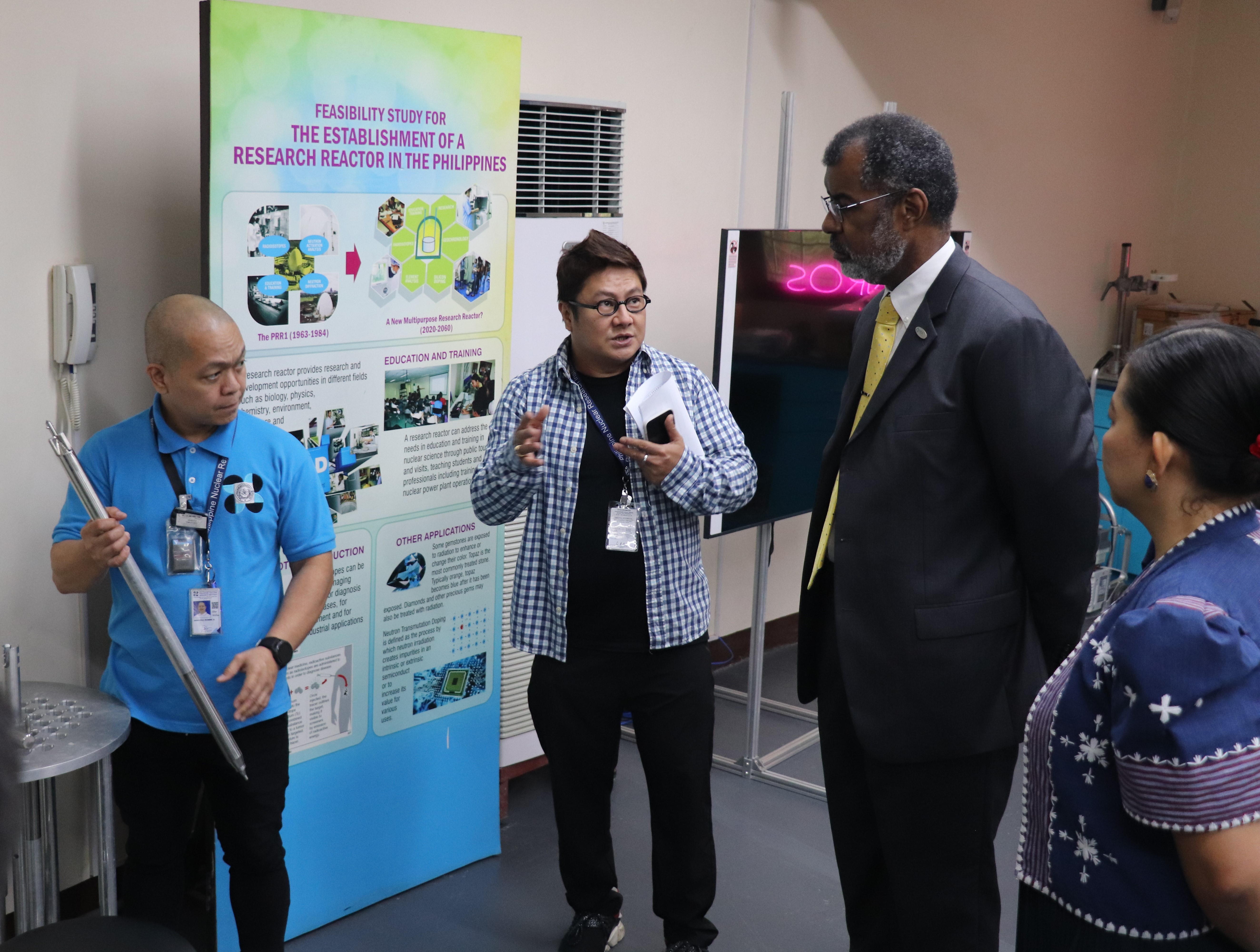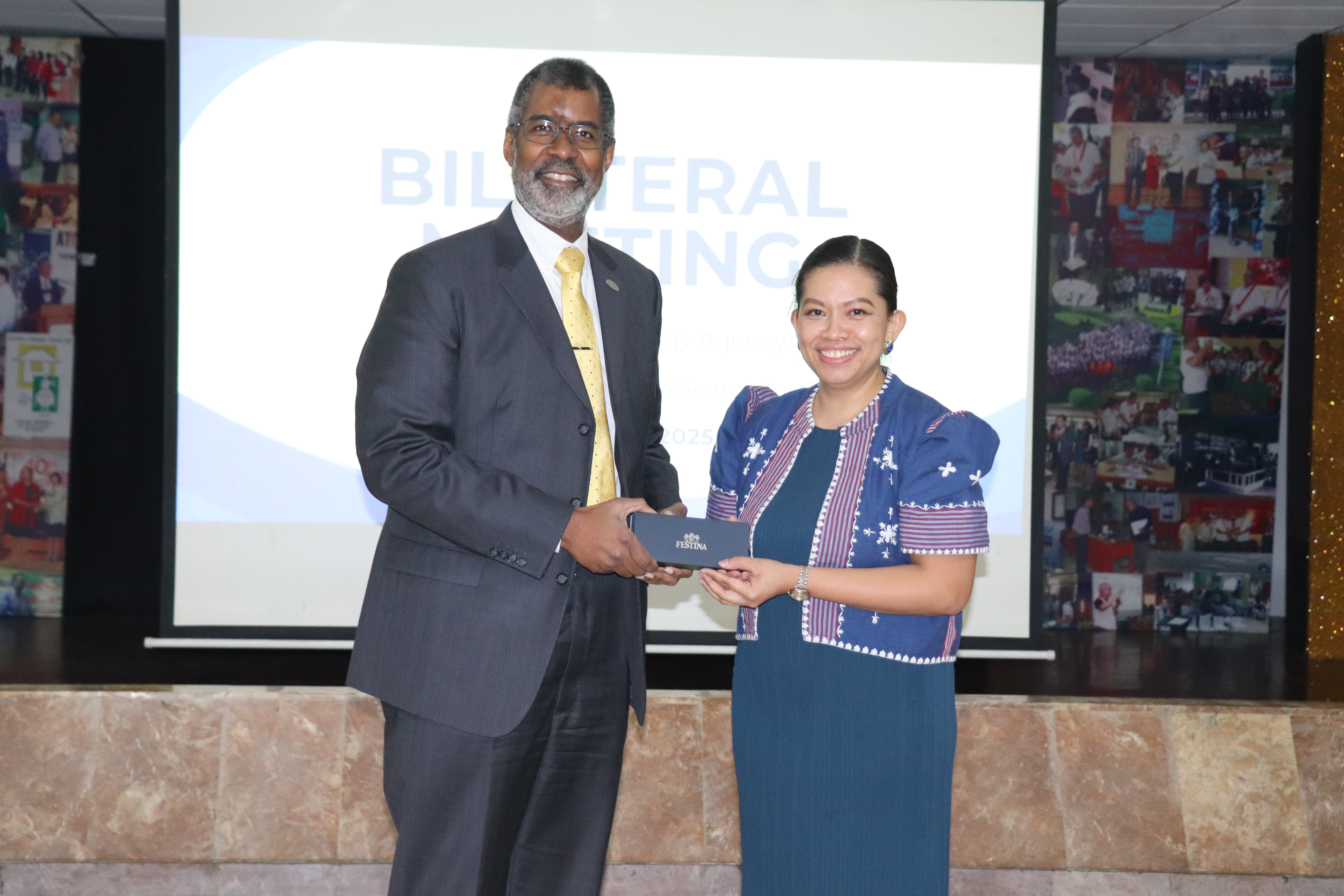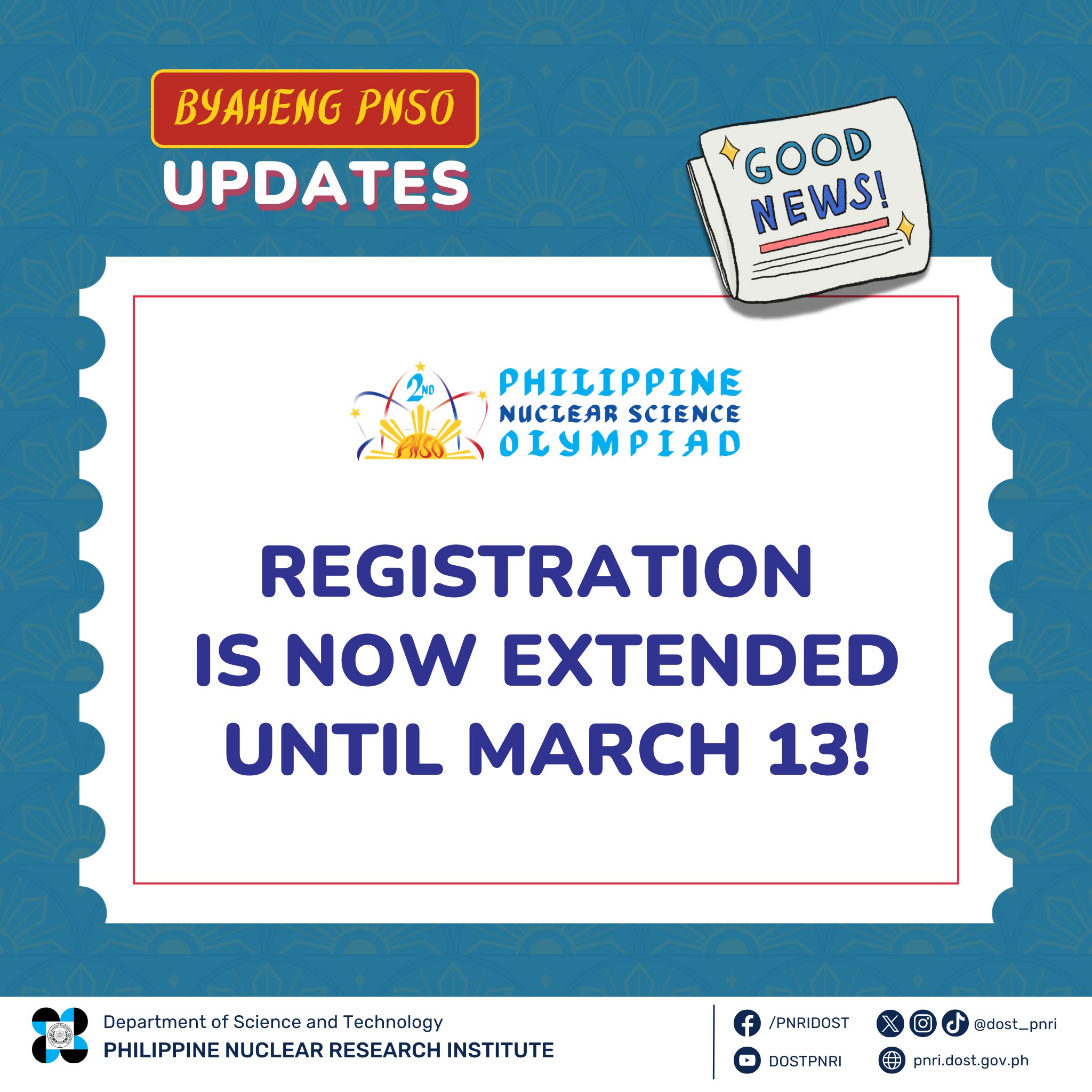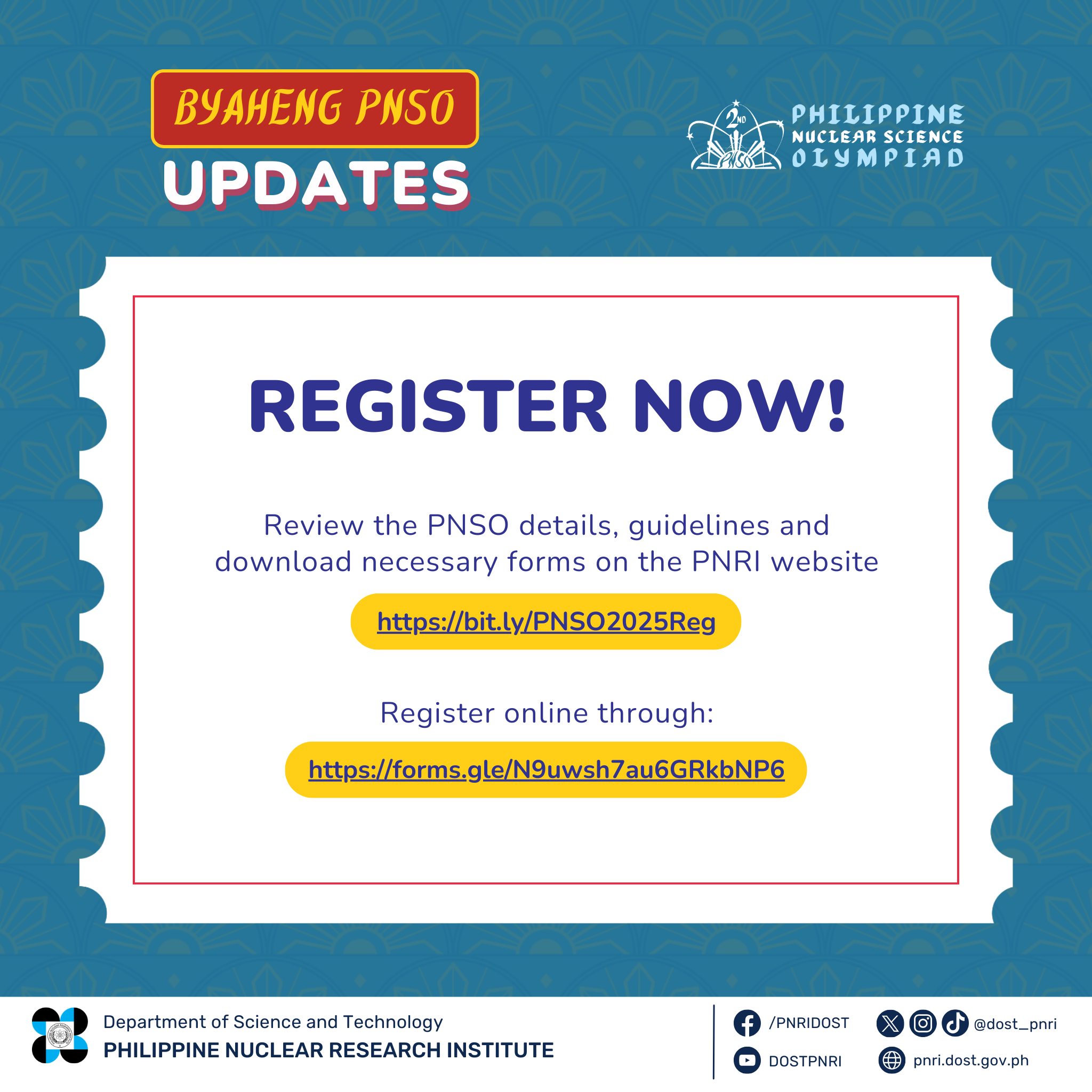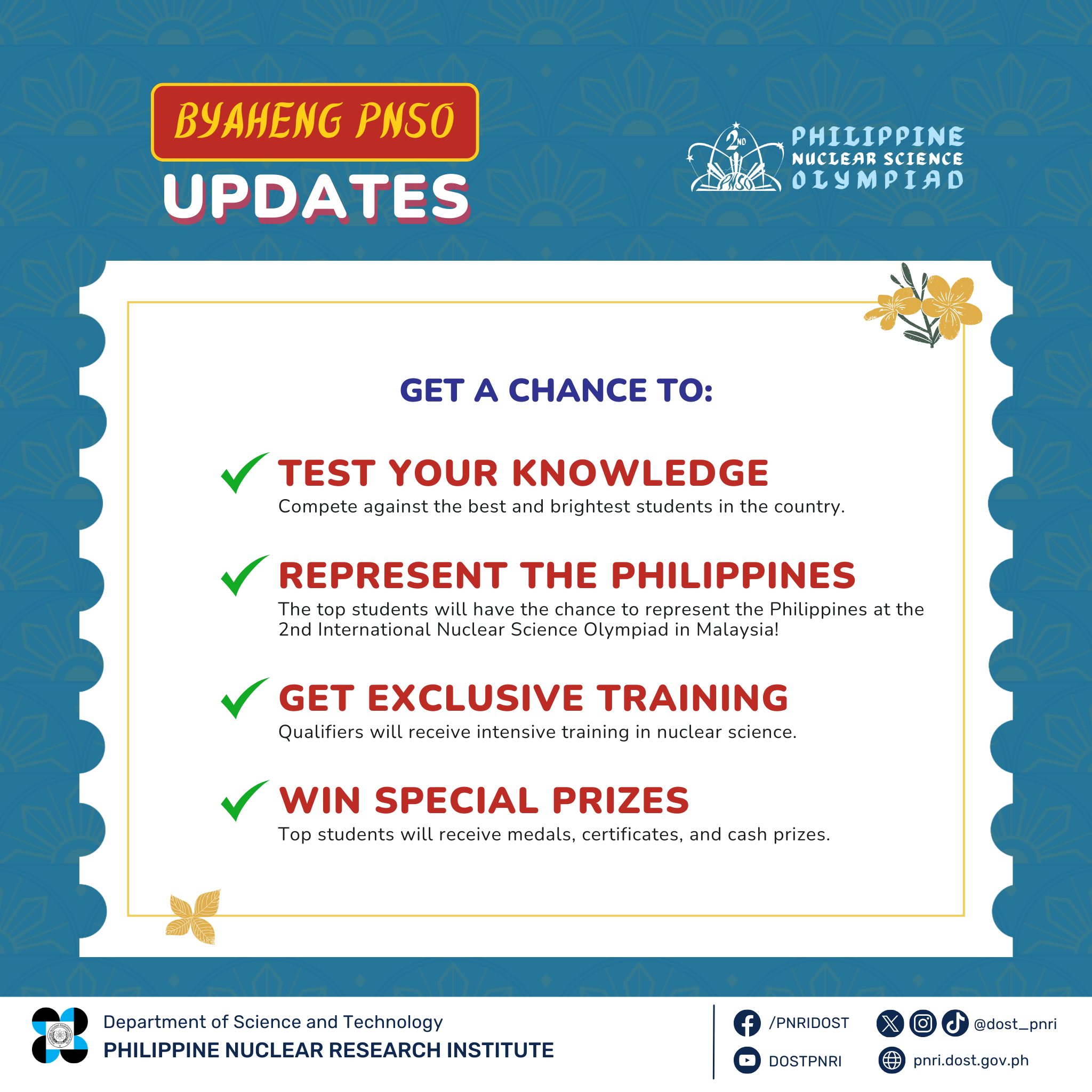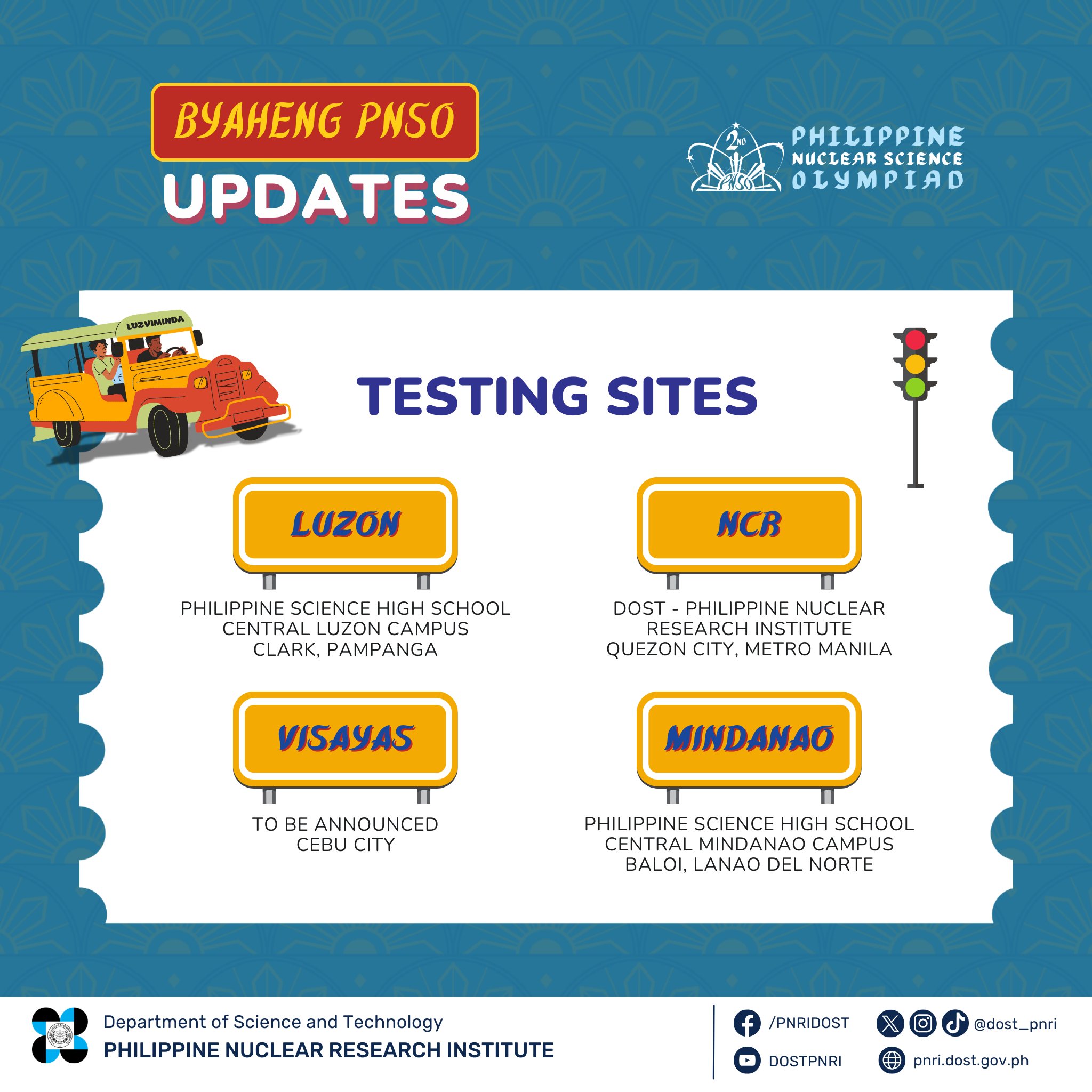Nuclear experts take the lead at Women’s Month media forum
- Details
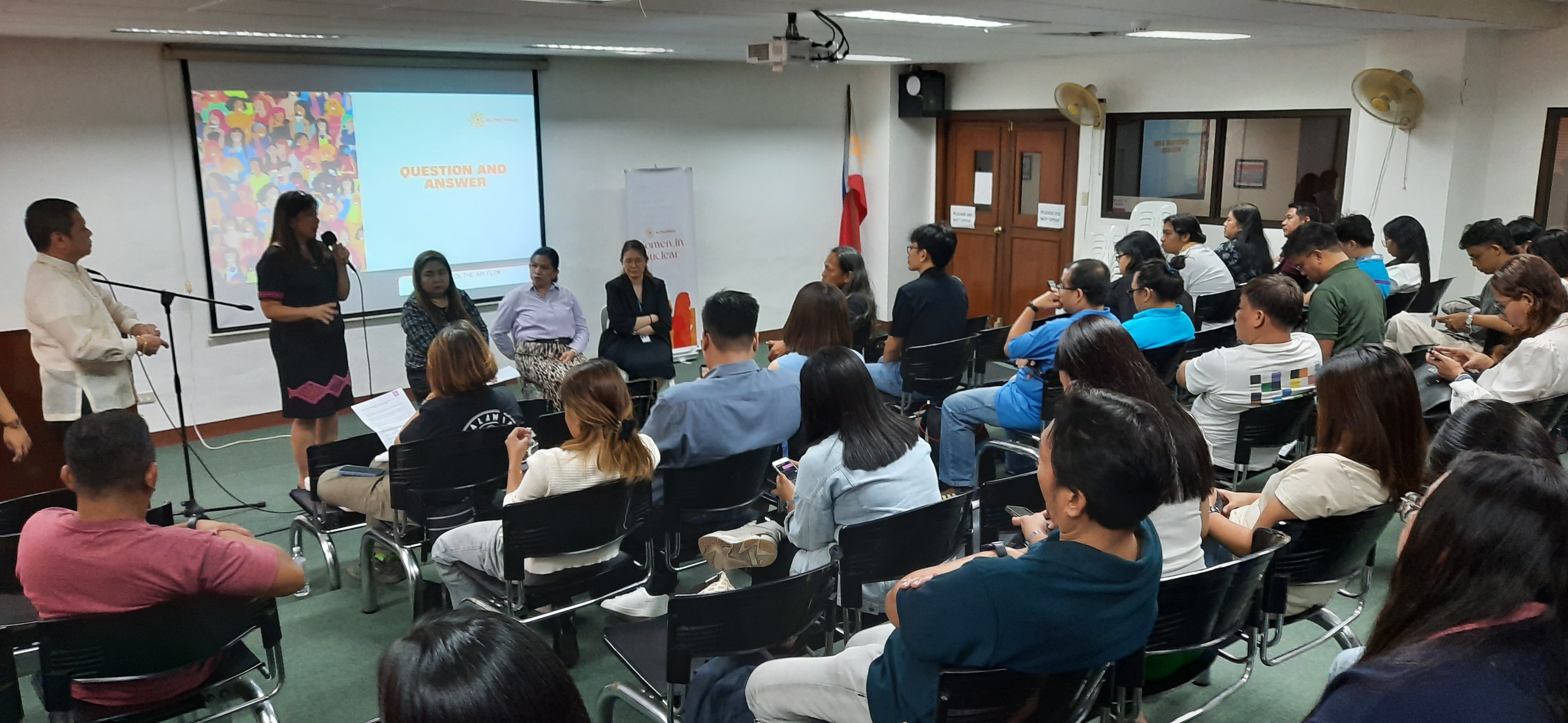

Nuclear experts take the lead at Women’s Month media forum
It's really time for women to take the lead in nuclear, and the Department of Science and Technology - Philippine Nuclear Research Institute (DOST-PNRI) does not disappoint as its scientists and researchers are featured during a media forum organized by Alpas Pinas this March 7, 2025, early this Women's Month.
Exhorting the next generation of women to "trust our wings when the right time comes", PNRI Deputy Director Dr. Vallerie Samson (left), Dr. Aileen Mendoza of the Chemistry Research Section (center) and Irradiation Services Section Head Ms. Haydee Solomon (right) shared their challenges, opportunities, inspiring stories as "Women in Nuclear" among members of the media and student attendees.
The participants later toured the facilities of PNRI, including its irradiation facilities for processing food and industrial products, and its centralized radioactive waste management facility.
Read more: Nuclear experts take the lead at Women’s Month media forum
OECD chief lauds PH strategic plan for nuclear energy
- Details
PNRI Nuclear Reactor Manager Ryan Olivares apprises DG Magwood on the Philippine Research Reactor - 1
DG Magwood hands a token to PNRI Deputy Director Dr. Vallerie Samson after the bilateral meeting between OECD-NEA and DOST-PNRI
OECD chief lauds PH strategic plan for nuclear energy
In a recent visit to the Philippine Nuclear Research Institute of the Department of Science and Technology (DOST-PNRI), Director General William D. Magwood IV of the Organization for Economic Cooperation and Development Nuclear Energy Agency (OECD NEA) lauded the Philippines' expanding nuclear energy program.
DG Magwood’s visit purposed to hold a bilateral meeting between him and PNRI officials focusing on the Philippines' strategic plans for leveraging nuclear energy to drive economic growth and address national development priorities.
The meeting underscored the Philippines' proactive approach, particularly its progress following Executive Order No. 164 which states that the country “shall ensure the peaceful use of nuclear technology anchored on critical tenets of public safety, national security, energy self-sufficiency, and environmental sustainability.”
Read more: OECD chief lauds PH strategic plan for nuclear energy
Registration for the 2nd PH Nuclear Science Olympiad is now open!
- Details
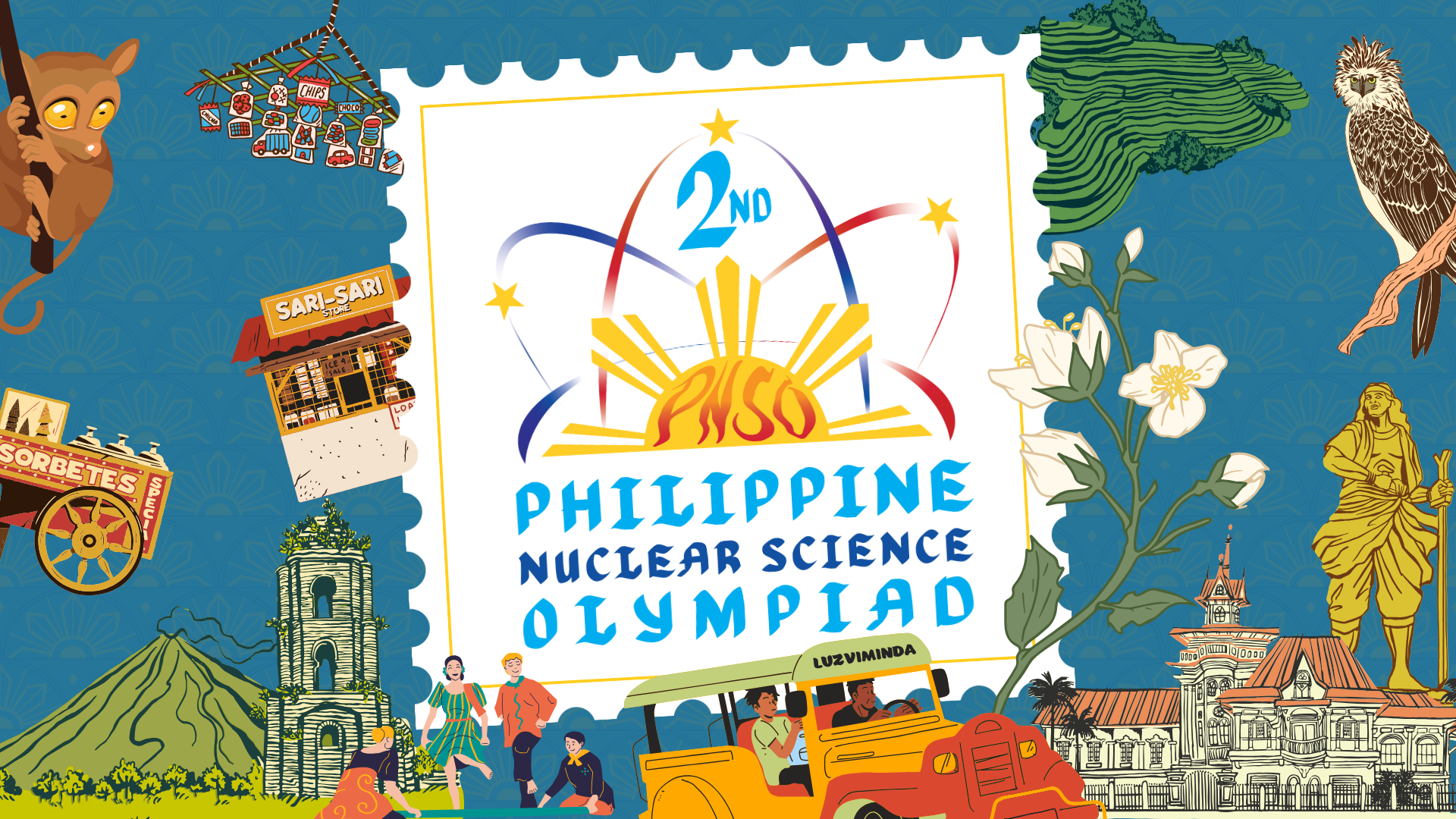
Registration for the 2nd PH Nuclear Science Olympiad is now open!
The Department of Science and Technology – Philippine Nuclear Research Institute (DOST-PNRI) is calling Filipino secondary students aged 15–20 from private and public schools across the country to register for the 2nd Philippine Nuclear Science Olympiad (PNSO), to be held this April 03, 2025.
This nationwide competition aims to identify and train the next generation of Filipino nuclear scientists and provide them with an opportunity to represent the Philippines at the 2nd International Nuclear Science Olympiad (INSO) in Malaysia this July 2025.
Building on the remarkable success of the Philippine team at the 1st INSO, where the Philippines secured 2 gold and 1 silver medals, along with a "Nuclear Ambassador" title and top scorer award, the 2nd PNSO seeks to further cultivate excellence in nuclear science education within the country.
Registration is open until 07 March 2025. Each school may nominate one (1) team only, composed of one official coach and a maximum of three (3) students. Schools are encouraged to rank students to facilitate shortlisting, if necessary.
The 2nd PNSO committee will evaluate the nominees according to established criteria and compile a list of official participants. The official list of participating students for the on-site exams, final testing sites, and the special prizes of the top 20 students will be announced on March 14. Participants and coaches will also be notified through email.
Organizing committee chair Ms. Kristine Marie Romallosa-Dean highlights the 2nd PNSO as a testament to the Philippines’ commitment to nurturing young minds in the field of nuclear science and technology. Top winners will receive medals, certificates, special prizes, and exclusive training with PNRI scientists and experts to prepare for the INSO 2025. Eligible students are encouraged to apply for this chance to represent the Philippines internationally.
The PNRI invites students, educators, and parents to review the PNSO details, guidelines and download necessary forms on the PNRI website: https://bit.ly/PNSO2025Reg
The online registration form can be accessed here: https://forms.gle/N9uwsh7au6GRkbNP6


























